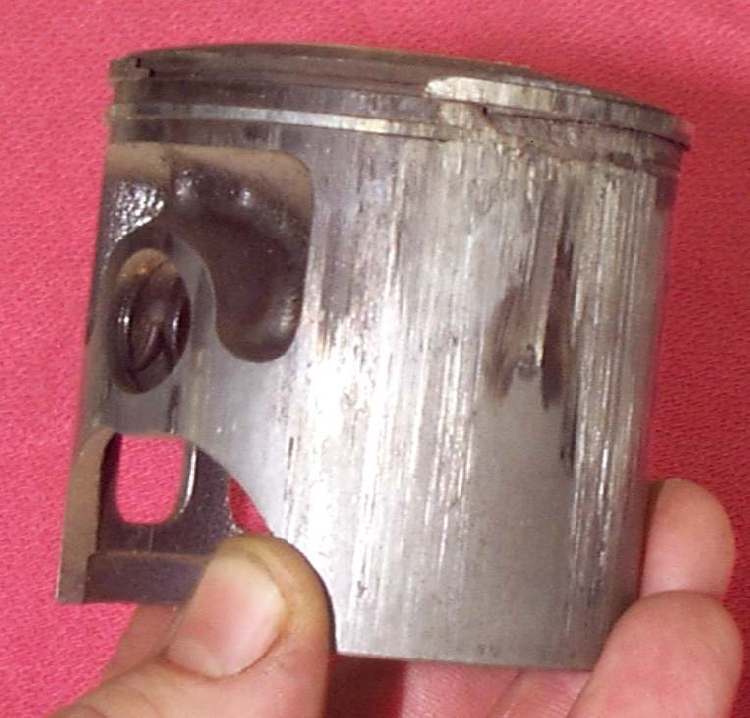Originally Posted By: Cujet
The issue with two strokes is that once detonation starts, piston seizure is not far behind. The two stroke engine may not need higher octane. Right up until it does.....
The main advantage of a quality two stroke synthetic is to prevent ring sticking, the resulting blowby and premature loss of compression.
Probably detonation:

Absolutely detonation:

Deto: Notice that not only did the crown fail, but the skirts are damaged, especially at the top, from excessive expansion due to, you guessed it, detonation.

Those that say two stroke engines don't need high octane are incorrect. The best thing one can do for two stroke reliability is to use excessive octane coupled with sufficient oil.
To the OP;
This is the only post you need to pay attention too. It has all the correct info.
The issue with two strokes is that once detonation starts, piston seizure is not far behind. The two stroke engine may not need higher octane. Right up until it does.....
The main advantage of a quality two stroke synthetic is to prevent ring sticking, the resulting blowby and premature loss of compression.
Probably detonation:

Absolutely detonation:

Deto: Notice that not only did the crown fail, but the skirts are damaged, especially at the top, from excessive expansion due to, you guessed it, detonation.

Those that say two stroke engines don't need high octane are incorrect. The best thing one can do for two stroke reliability is to use excessive octane coupled with sufficient oil.
To the OP;
This is the only post you need to pay attention too. It has all the correct info.
Last edited:






